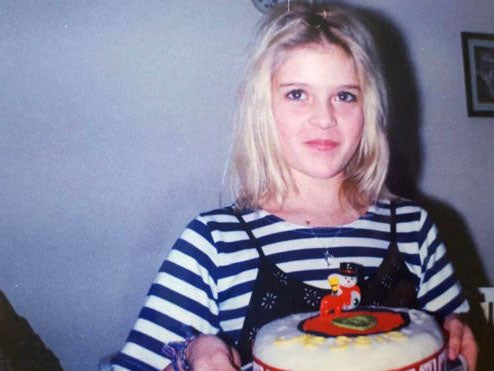Families of people who die in prison custody face 'uneven playing field' in inquests, figures suggest
'Vulnerable families in the midst of grief are forced to navigate a complex and alien application process to be provided with the bare minimum of support – and most won’t even receive that'

Your support helps us to tell the story
From reproductive rights to climate change to Big Tech, The Independent is on the ground when the story is developing. Whether it's investigating the financials of Elon Musk's pro-Trump PAC or producing our latest documentary, 'The A Word', which shines a light on the American women fighting for reproductive rights, we know how important it is to parse out the facts from the messaging.
At such a critical moment in US history, we need reporters on the ground. Your donation allows us to keep sending journalists to speak to both sides of the story.
The Independent is trusted by Americans across the entire political spectrum. And unlike many other quality news outlets, we choose not to lock Americans out of our reporting and analysis with paywalls. We believe quality journalism should be available to everyone, paid for by those who can afford it.
Your support makes all the difference.The prison service receives 43 times more funding for inquests into deaths in custody than the families of those who have died, new figures suggest, prompting concerns bereaved relatives face an “uneven playing field” in the process.
Data obtained by charity Inquest shows the Ministry of Justice (MoJ) spent £4.2m on the prison and probation service for legal representation at inquests for prisoner deaths, while granting just £92,000 in legal aid to the relatives of the deceased.
The charity said the “truly shocking” figures demonstrated why bereaved families felt the system was “stacked against them” during investigations into the deaths of their loved ones.
There are about 500 inquests into deaths in custody, prisons and mental health institutions each year, and the families of the bereaved do not receive any automatic legal representation.
They must go through a long and complicated process to apply for legal aid, and often are found not to be eligible – meaning they must either pay for a lawyer or represent themselves.
The new data, obtained through freedom of information requests, comes after the government last month rejected calls to provide automatic legal aid funding at inquests where deaths involved state agencies, which campaigners branded a “failure to confront the reality of the uneven playing field faced by bereaved families”.
Shadow justice secretary Richard Burgon pledged earlier this year that a Labour government would provide automatic legal aid funding for the bereaved at inquests where their relative has died under the control of state agencies.
Mr Burgon said bereaved families “deserve state support in their pursuit of the truth”, adding: “Truth is the first step towards justice and such legal support is a key first step towards the truth.”
Stephanie Peacock, Labour MP for Barnsley East, who held a parliamentary debate on legal aid for inquests on Wednesday, said the issue concerned ”a huge injustice right at the very heart of our justice system”.
She added: “On the one hand, state bodies and representatives are equipped with access to unlimited funds and resources – the best experts and the best legal teams.
“On the other, vulnerable families in the midst of grief are being forced to navigate a complex and alien application process to be provided with the bare minimum of support – and most won’t even receive that.”
Inquest is now calling for automatic non-means tested legal aid funding to families for specialist representation immediately after a state-related death to cover preparation and representation at the inquest and other legal processes.
Recent inquests into deaths in custody include that of Natasha Chin, who was found unresponsive in her cell at HMP Bronzefield less than 36 hours after she had arrived at the prison. It found neglect and systemic failures by prison and healthcare staff caused her death.
In another case, a judge found “deeply inadequate” prison procedures contributed to the death of Jessica Whitchurch, who was left alone in her cell after being found with ligatures around her neck.
In light of the new figures, Rebecca Roberts, Inquest’s head of policy said: “Inquests following state related deaths are intended to seek the truth and expose unsafe practices.
“Yet bereaved families are facing well-funded legal teams defending the interests and reputations of state and corporate bodies, who work together to shut down or narrow lines of enquiry.
“The limited data available suggests that the MoJ are signing off a budget for the Prison and Probation Service to spend 43 times more on their own legal representation than is granted via the Legal Aid Agency to bereaved families for prison inquests.
“These are truly shocking figures and it’s no wonder that families feel that the system is stacked against them. The Ministry of Justice must act now to introduce fair legal funding for bereaved families to ensure a level playing field at inquests.”
A Ministry of Justice spokesperson said: “The Prison Service always seeks to learn appropriate lessons after deaths occur to ensure that further lives are not needlessly lost. This includes listening to and acting upon the recommendations made by coroners and the Prisons and Probation Ombudsman.
“Our review of legal aid showed that legal representation is not necessary for bereaved families at the vast majority of inquests but we are making a number of changes to ensure there’s more support for them.”
Join our commenting forum
Join thought-provoking conversations, follow other Independent readers and see their replies
Comments